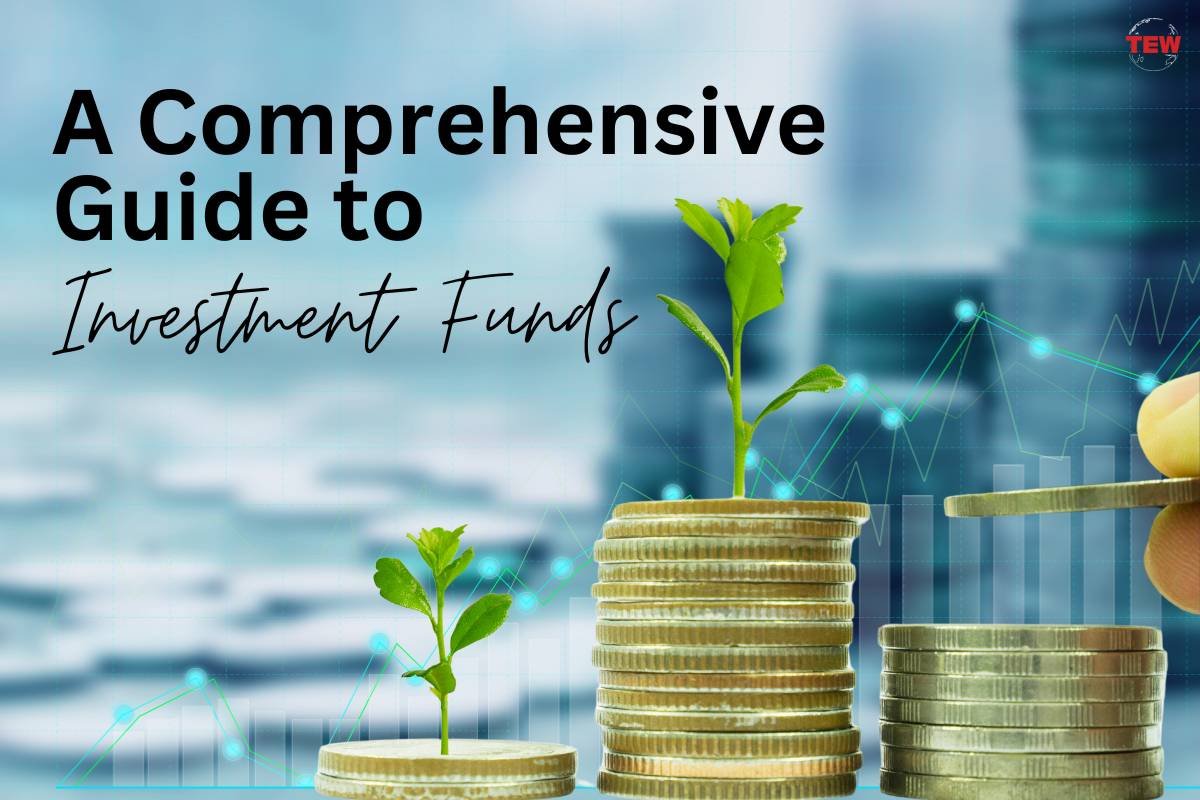Financial investments are a crucial aspect of one’s portfolio. These investment funds offer numerous benefits to both seasoned and newcomers. These investments pool money from various investors to invest in a diversified portfolio of stocks. There exists a pool of investments comprised of different securities such as equities, debt instruments, and money market instruments. These holdings form a mutual fund and each combination is also referred to as a portfolio. These investment funds offer individuals opportunities to invest money in a diversified portfolio that is managed by professionals.
Benefits of Investment Funds:
The world of finance is brimming with potential growth opportunities, investors actively seek strategic ways to optimize their portfolios. Alternative investment funds have emerged as a promising avenue, offering a diverse range of investment options. For investors wondering whether to invest or not, here we bring you some benefits of investment funds:
1. No minimum limit to investment:

It’s a misconception that only major investors have access to investment funds. Nowadays, everyone can use them. They’re a favorite product with Spanish investors.
2. Transparency and control:
Every investment fund has what is known as a Key Investor Information Document (KIID) for customers outlining the investment policy, fees, liquidity, and fund performance. The depository company supervises the fund manager. The competent regulatory body in Spain is the National Securities Market Commission (CNMV).
3. Subject to strict regulation:
All fund managers and depository companies are regulated by the Spanish National Securities Market Commission. Every fund sold in Spain has to be authorized and registered in advance with this body, which also supervises the periodic management reports that fund managers are obliged to send to their unit holders.
4. Diversification of investment:

One of the best advantages of investment funds is the diversification available. It helps investors to create a mixed portfolio that segregates the overall investment. This becomes easier as not always all stocks will perform as per expectation. So it is better to have a variety of stocks for investment. The underperforming stocks can always be sold when at par and the investment in the high-performing stocks can be increased.
5. Tax treatment is highly beneficial:
The tax benefits associated with the investment funds are a vital reason why the general public decides to invest. To encourage people to invest, as it boosts the economy, the Government offers several tax benefits. Unlike other products, investment funds are only taxed when you redeem your shares and collect a profit. This profit is treated as an income on the asset, which means it is taxed steadily.
6. Highly liquid:
A person can easily sell the investment funds at any point in time. The funds do not get locked for any particular time frame. Upon liquidation, the money is deposited in the investor’s bank account in a few days. Also, some funds provide faster disbursal. There are also funds called funds that have an instant redemption facility, which means the money is transferred to your bank account on the same day.
7. Well-regulated:
All mutual funds are regulated by the capital markets. It means all the investment fund houses are required to follow the various mandates as laid down by the authorities. This, in turn, protects the interests of the investors. Moreover, the authorities make it mandatory for all investors to disclose their portfolios every month.
8. Hassle-free investment:

It is very easy to invest in investment funds either online or offline. You only need to visit your Asset Management Company’s (AMC) website and submit the necessary documents to start on your investment journey. You can also visit your AMC in person and sign the physical documents to get started. This ease of investment makes investing easy.
Why investment Funds are better than Bank Term Deposits?
Term Deposits and Investment Funds are two popular investment vehicles. Investment funds generally invest in stocks, bonds, and commodities (like gold) and offer returns as per the market performance of the underlying asset. While term deposits offer a fixed interest rate for a fixed term. These deposits are offered by banks whereas investment funds are offered by fund houses.
Difference between Term Deposits and Investment Funds:
| Basis | Term Deposits | Investment Funds |
| Investment Amount | Specified minimum amount; no maximum amount | No minimum amount; no limit to the maximum amount |
| Tenure | 1-10 years | No fixed tenure; depends on investor preference |
| Returns | Fixed Interest rate | Market-linked performance |
| Risk | Often low | Low to high, depending on the stock |
| Expense | No expenses | Involves a nominal expense ratio |
| Liquidity | Low | Generally high |
| Taxation | Taxable as per the criteria | Taxable as per the criteria |
How do Investment Funds Work?
An investment fund is a convenient way for investors to help diversify their investments at a generally low cost. It takes a fair degree of complexity to deliver such a simple solution. Here are some elements to know about how Investment Funds Work.
1. How do investment funds invest?
An investment fund pools money from many investors and invests it in securities, such as stocks, bonds, or other assets. The combined holdings are known as a “portfolio”, which is managed by a fund manager or team of fund managers. The management of the portfolio is dependent on the type of fund. It can be both actively and passively managed.
2. How these funds are priced?
Individual stocks trade using a share price- that is, the cost of one share in a company. The price per share is known as net asset value (NAV). The NAV is the net value of a fund’s assets minus its liabilities (regular expenses), divided by the number of shares outstanding at market close.
3. How investors can make money with mutual funds?
The fund’s returns can come from several sources:
- Appreciation in the fund’s NAV, which happens if the fund’s investments increase in price while you own the fund.
- Income earned from dividends on stocks or interest on bonds.
- Capital gains or profits are incurred when the fund sells investments that have increased in price.
4. How often do investment funds trade?
You can enter an order to buy or sell the shares at any time, but your trade won’t be executed until the closing of the current trading session or the next trading session if you place your order after hours. The price you realize will be the NAV that is calculated after the market closes.
5. How do these funds handle taxes?
When these funds sell investments that have increased in price, they will ultimately need to distribute the profit- known as capital gains- by the end of the year. When this occurs, taxes on your capital gains may be due. If you hold the fund in a taxable account, such as a brokerage account, you will receive a form at the end of the year that details the capital gains and losses your fund may have incurred.
Conclusion:
The thing that discourages potential investors from investing is the volatility of the market. But, when a calculated research and own study is done, the risk can be worth it. You pay tax only when you redeem the shares. The tax amount is also minimal, so that won’t be an issue. Also, when it comes to beating inflation, these funds do a pretty good job.




